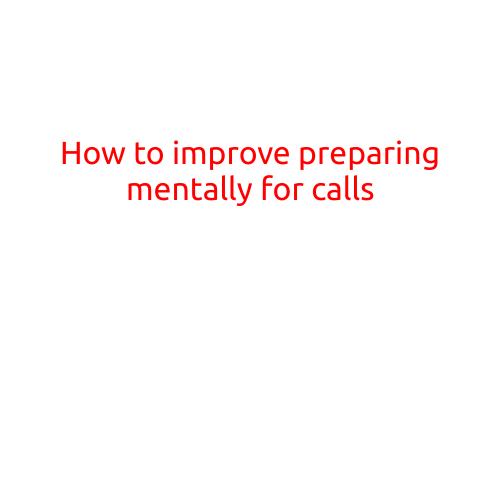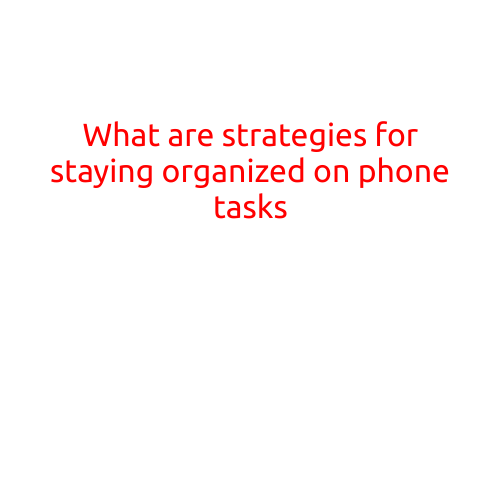
How to Improve Preparing Mentally for Calls
As a representative of your company or organization, you may find yourself facing a daunting task: making phone calls to customers, prospects, or clients. The thought of initiating a conversation with a stranger, navigating uncertain outcomes, and managing potential objections can be overwhelming. However, with the right mental preparation, you can transform your calls into successful interactions that drive results.
In this article, we’ll uncover the importance of mental preparation for calls and provide actionable tips to help you improve your mental readiness.
Why Mental Preparation is Crucial for Calls
Before we dive into the tips, it’s essential to understand why mental preparation is vital for successful calls. A well-prepared mind enables you to:
- Reduce anxiety and stress: Uncertainty can be overwhelming, but mental preparation helps calm your nerves, allowing you to focus on the conversation.
- Boost confidence: When you’re mentally prepared, you’re more likely to feel confident in your abilities, which translates to a more effective and assertive tone.
- Improve communication skills: Preparation helps you anticipate potential questions and responses, leading to clearer and more effective communication.
- Manage rejection and criticism: A prepared mind allows you to navigate rejection and criticism with ease, maintaining a positive attitude and focus on the next steps.
5 Tips to Improve Your Mental Preparation for Calls
- Set Clear Goals: Define what you want to achieve from each call. Whether it’s to schedule a meeting, close a sale, or resolve an issue, having a clear goal in mind helps you stay focused and motivated.
- Prepare Your Script (But Don’t Memorize It): Develop a solid understanding of your script or sales pitch, but avoid memorizing it verbatim. This will help you stay conversational and adapt to the call’s natural flow.
- Visualize Success: Close your eyes and imagine yourself navigating the call successfully. Visualize the conversation flowing smoothly, and yourself handling objections with ease. This mental rehearsal helps build confidence and mental toughness.
- Role-Play or Use Scenario-Based Training: Practice different scenarios and responses with a colleague or mentor. This helps you prepare for unexpected questions and develop a sense of preparedness under pressure.
- Take Care of Yourself: Adequate sleep, exercise, and nutrition are essential for maintaining a sharp mind and reducing stress. Make sure to prioritize self-care to ensure you’re performing at your best during calls.
Additional Tips for Staycation and Stress Management
- Take Deep Breaths: Before each call, take a few deep breaths to calm your nerves and focus your mind.
- Use Positive Self-Talk: Remind yourself of your strengths and past successes to boost confidence and mental preparedness.
- Listen and Observe: Pay attention to other professionals’ experiences and tactics. Observing how they handle calls can help you learn new strategies and refine your approach.
Conclusion
Improving your mental preparation for calls is a crucial step in achieving success and building confidence in your communication skills. By following these tips, you’ll be better equipped to handle the challenges of phone calls and turn them into valuable opportunities for growth and development. Remember to set clear goals, prepare your script, visualize success, role-play, and take care of yourself. With these strategies in place, you’ll be well on your way to becoming a top-performing call professional.





